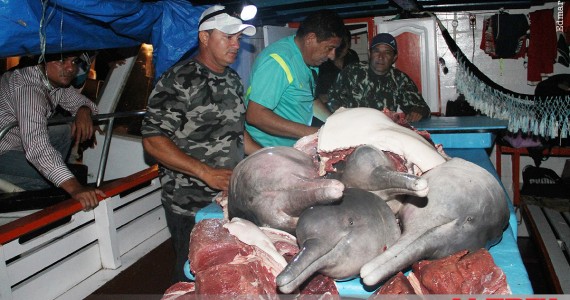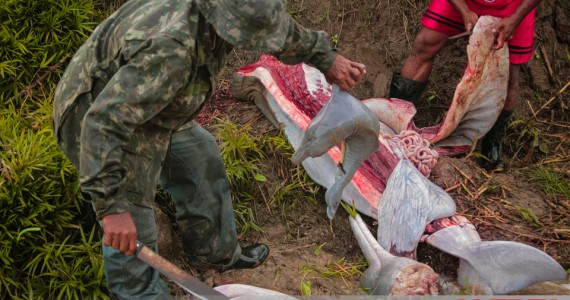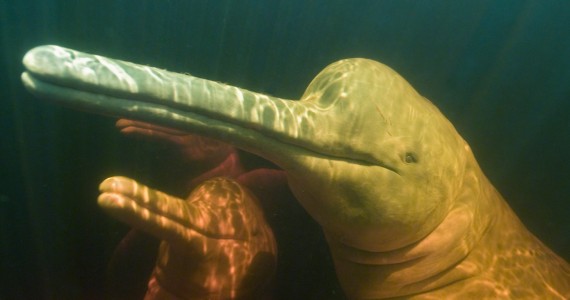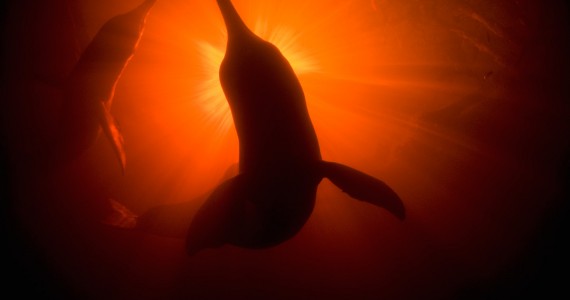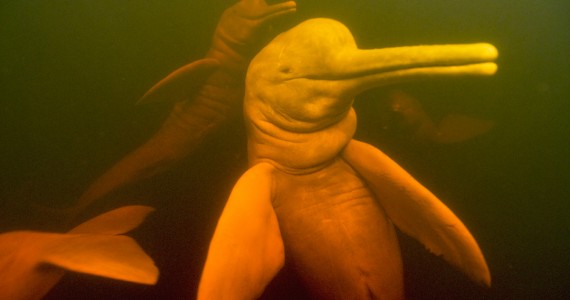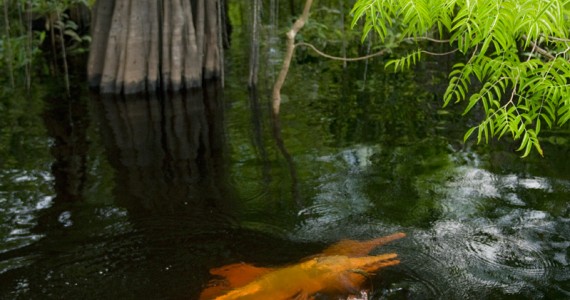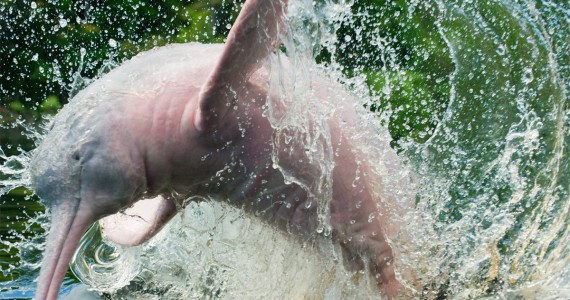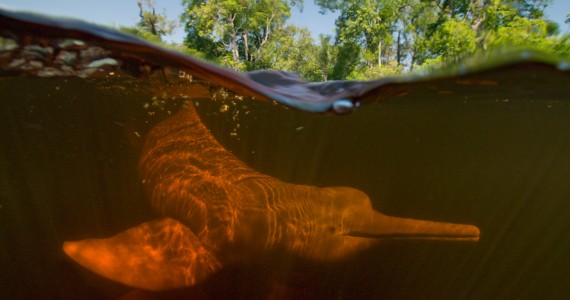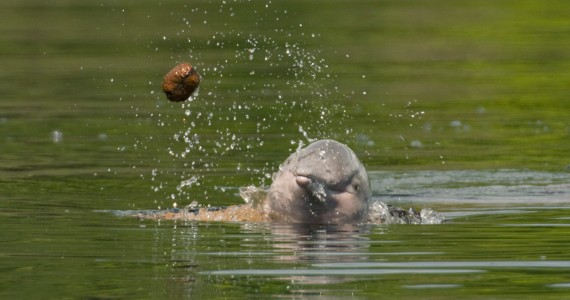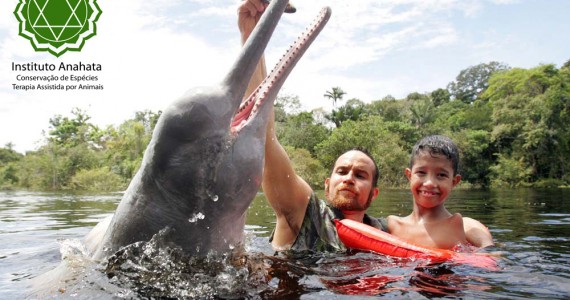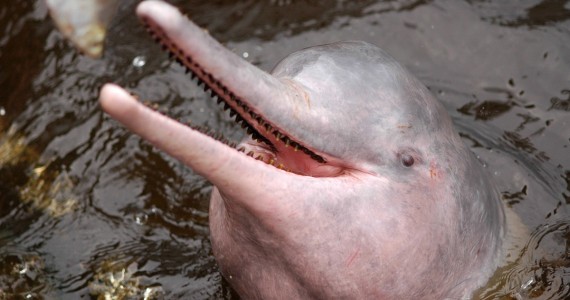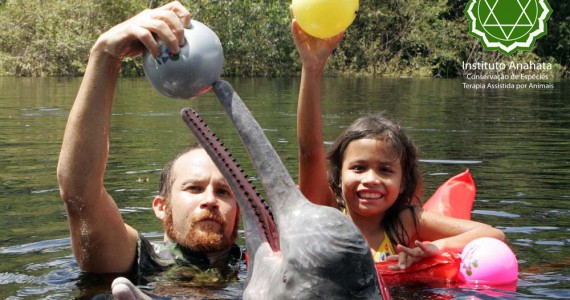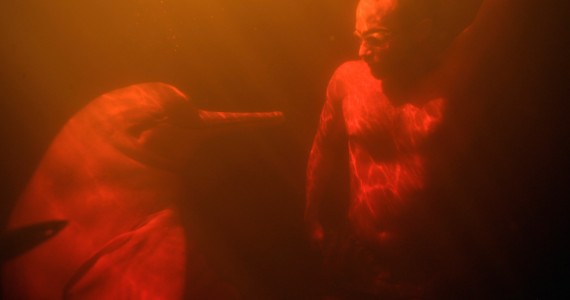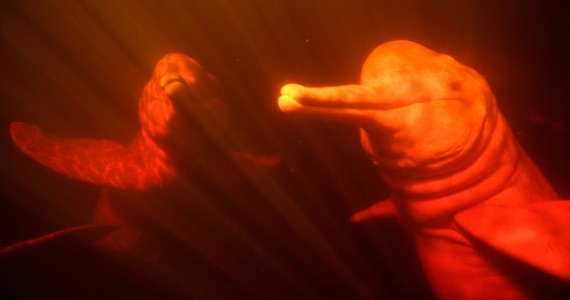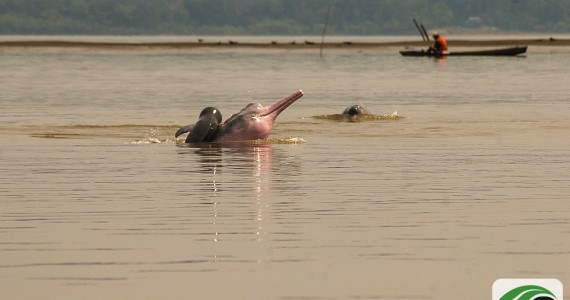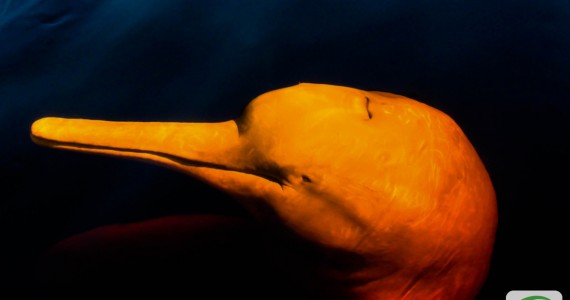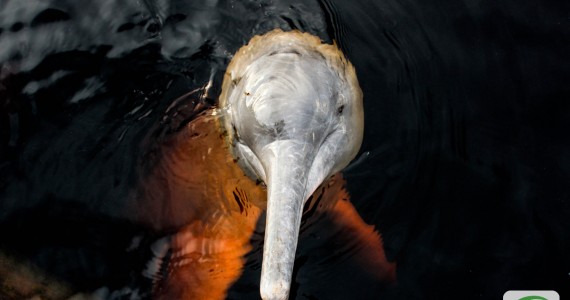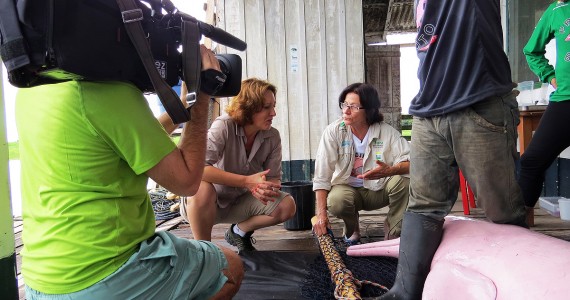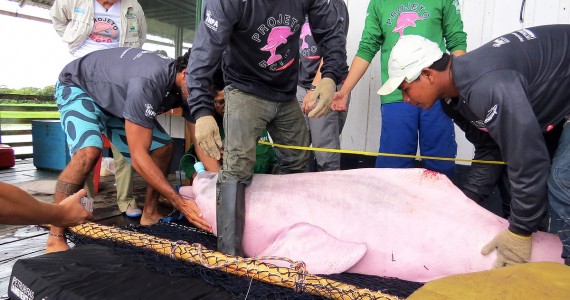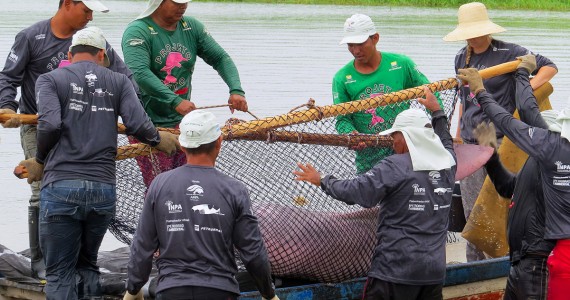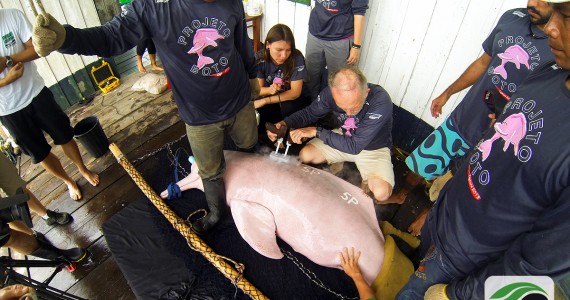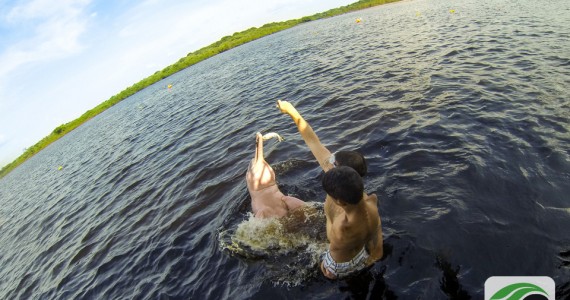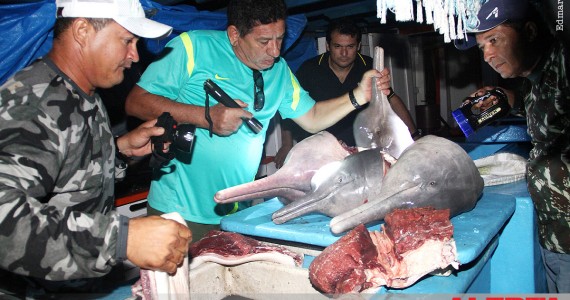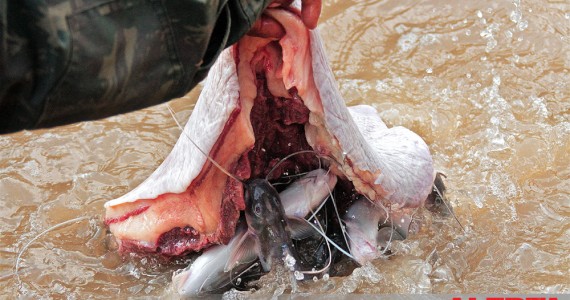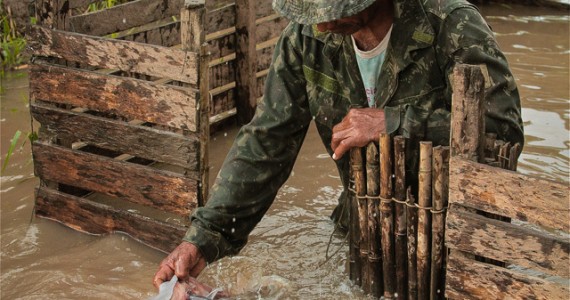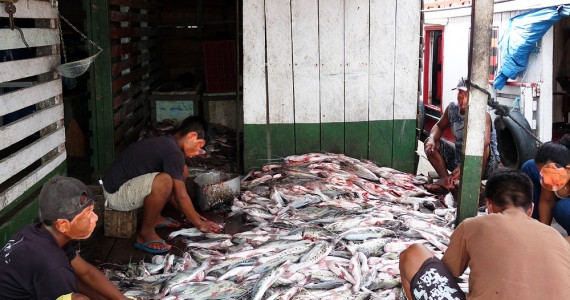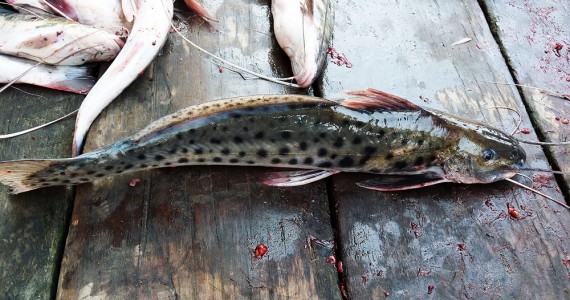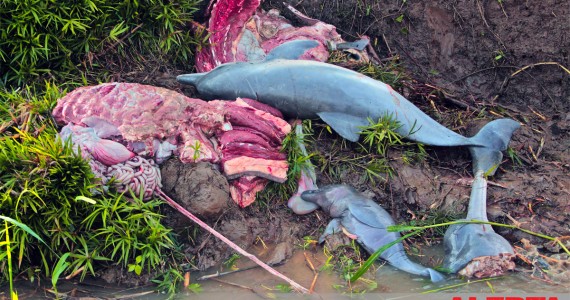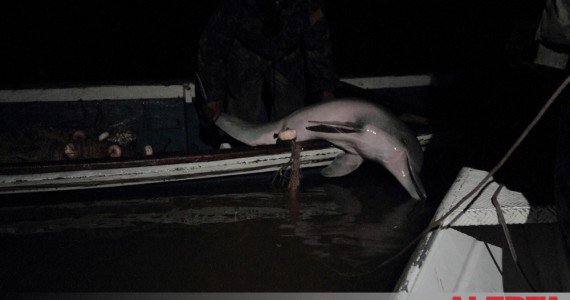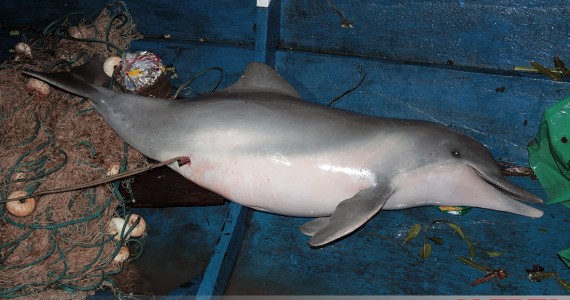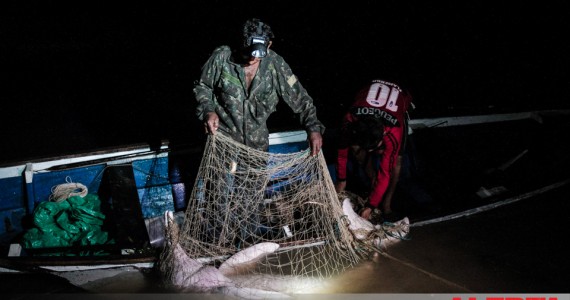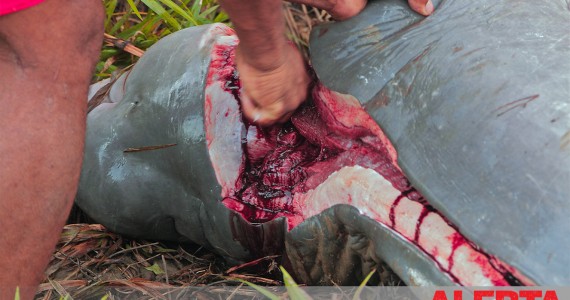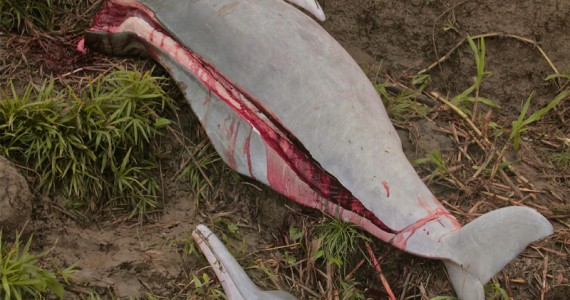This illegal, immoral and cruel killing spree has been drastically affecting pink river dolphin populations in the Amazon. There are confirmed cases of hunters specialized in killing these dolphins catching over 20 animals per sortie. These poachers sell their meat to riverside community members, who use it to fish.
These dolphins are being killed to be used as bait for a necrophage catfish locally known in Brazil as piracatinga, or urubú-d’água (water vulture). However, this fish is sold under false names such as douradinha in Brazil and capaz in Colombia, conning consumers into buying a product they don’t know. Tons of piracatinga are captured annually using pink dolphin meat. Consequently, the volume of this fish found in Brazilian markets has been increasing exponentially in the past few years.
The pink river dolphin, or boto (Inia geoffrensis) is the largest river dolphin in the world and can live up to 50 years. Despite their longevity, they have low reproductive rates and have a long period in which they care for their young. This makes its existence fragile when confronted with the constant threat of poachers.
The boto is closely related to marine dolphins and is totally adapted to the Amazonian environment. Not only is it essential for the ecological balance in the Amazon river basin, it is also an important character in regional folklore.
If these fishing practices continue, it is estimated that over 2500 pink dolphins will be killed per year in some regions of the Amazon, meaning this species may disappear in the not-so-distant future.
It is estimated that in some regions of the Amazon, 2500 botos have been killed every year. These numbers and the situation are as alarming as when the dolphin killing spree in Japan that caused so much uproar occurred.
The boto anti theft gps tracker for bikes is used as bait to catch a fish called piracatinga, which in Brazil is sold under the alias of douradinha or pintadinha.

